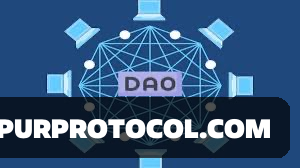Introduction
The advent of blockchain technology has paved the way for numerous innovations, one of the most revolutionary being Decentralized Autonomous Organizations (DAOs).
These entities represent a new paradigm in organizational governance, leveraging the power of decentralization, transparency, and automation.
As DAOs gain traction, they are poised to redefine how we think about collaboration and decision-making in various sectors.
What Are DAOs?
A Decentralized Autonomous Organization (DAO) is an entity governed by smart contracts on a blockchain, allowing for decentralized management and decision-making.
Unlike traditional organizations, DAOs operate without centralized leadership, relying instead on a collective of stakeholders who hold governance tokens.
These tokens grant voting rights, enabling members to participate in the decision-making process.
History and Evolution
The concept of DAOs dates back to the early days of blockchain technology.
One of the first significant DAOs was "The DAO," launched in 2016 on the Ethereum blockchain. Despite its initial success,
The DAO faced a critical security breach, leading to its eventual collapse. Nevertheless, this incident provided valuable lessons and spurred further innovation in the field.
Since then, numerous DAOs have emerged, each contributing to the evolution of decentralized governance models.
How Do DAOs Work?
At the core of a DAO lies blockchain technology and smart contracts.
These self-executing contracts encode the rules and protocols of the organization, ensuring transparency and trust.
Governance tokens are distributed among members, who can propose and vote on various initiatives.
The decentralized nature of DAOs ensures that no single entity has overarching control, promoting fairness and inclusivity.
Benefits of DAOs
1. Decentralization and Transparency:
DAOs eliminate the need for intermediaries, reducing costs and increasing efficiency.
All transactions and decisions are recorded on the blockchain, ensuring transparency and accountability.
2. Reduced Intermediaries:
By automating processes through smart contracts, DAOs minimize the reliance on intermediaries, leading to faster and more cost-effective operations.
3. Enhanced Innovation:
The collaborative nature of DAOs fosters innovation, as diverse stakeholders contribute their perspectives and expertise.
4. Global Participation:
DAOs enable individuals from around the world to participate in governance, breaking down geographical barriers.
Challenges and Risks
1. Security Concerns:
Despite advancements in blockchain security, DAOs remain vulnerable to hacks and exploits. Ensuring robust security measures is paramount.
2. Legal and Regulatory Uncertainties:
The decentralized nature of DAOs poses challenges for existing legal frameworks. Regulators are still grappling with how to categorize and oversee these entities.
3. Governance Issues:
Achieving consensus in a decentralized system can be challenging, especially with a large and diverse group of stakeholders.
Notable Examples of DAOs
- MakerDAO:
A pioneering project in decentralized finance (DeFi), MakerDAO governs the issuance of the DAI stablecoin through a decentralized protocol.
- Aragon:
Provides a platform for creating and managing DAOs, enabling organizations to operate transparently and democratically.
